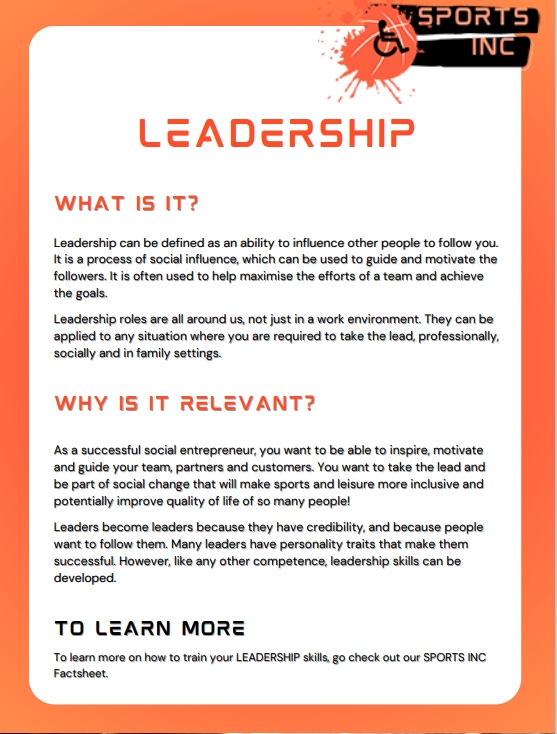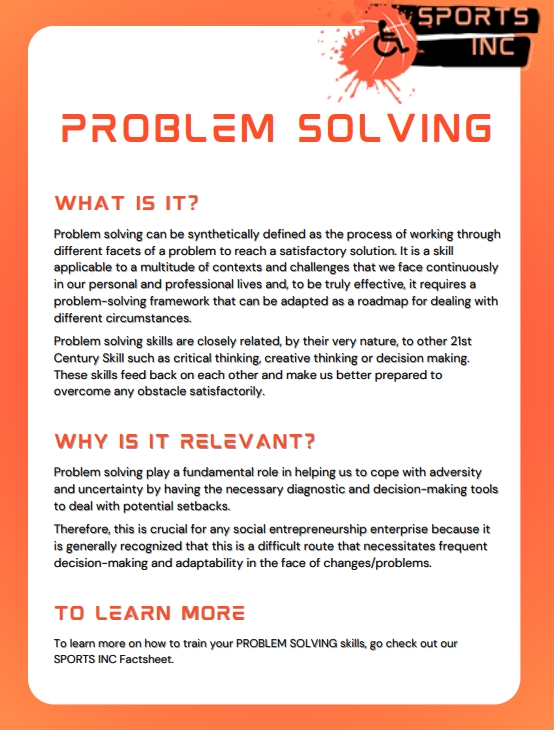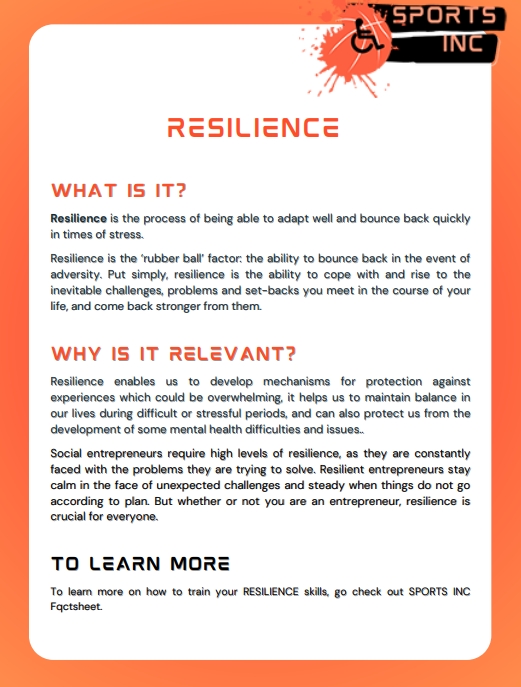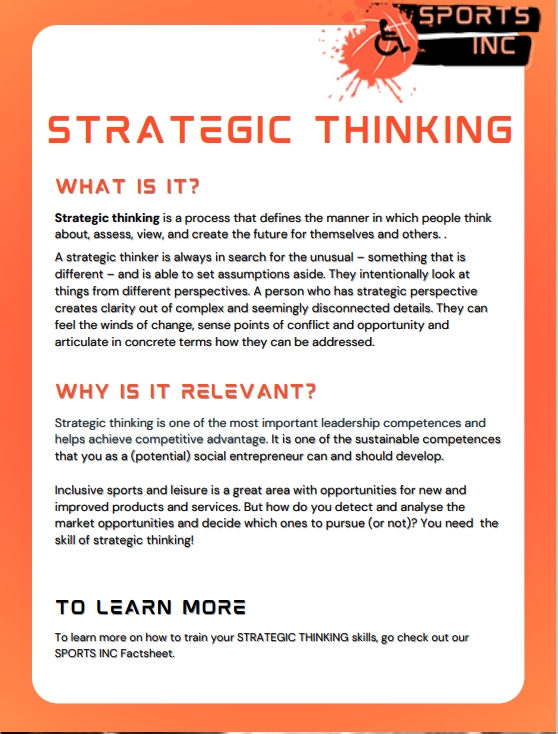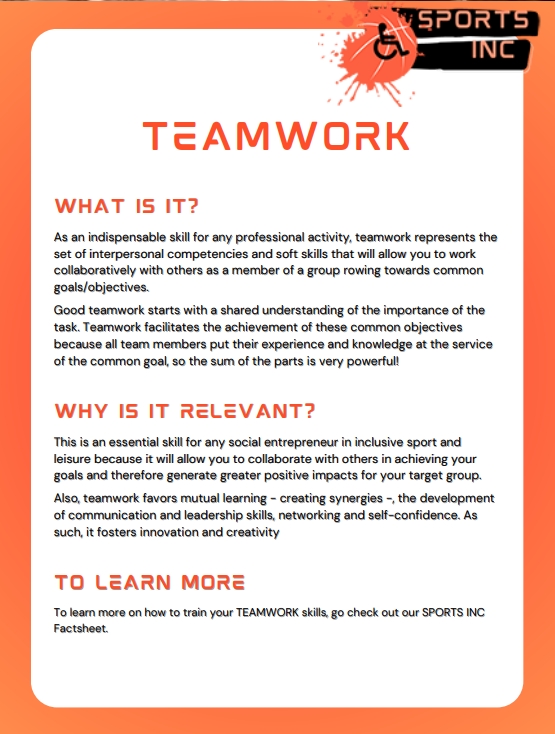STRATEGIC THINKING
Strategic thinking is one of the most important leadership competences and helps achieve competitive advantage.
Strategic thinking can be defined as “the ability to generate insights on a continual basis to achieve competitive advantage.” An insight is when you combine two or more disparate pieces of information in a unique way to create a new approach. The insight provides you with an understanding of the true nature of the issue at hand.
What Strategic Thinking is NOT:
● Strategic thinking is not the same as critical thinking. Critical thinking is a useful part of strategic thinking.
● Strategic thinking is not the same as creative thinking. Creative thinking is imaginative and playful and can be a useful component of strategic thinking.
● Strategic thinking is not the same as visionary thinking. While a company needs a vision, strategic thinking involves a deeper level of conceptualizing – compared to visionary thinking – because the outcome that is envisioned will only be achieved through creating and executing a strategy.
● Strategic thinking is not the same as strategic planning. Organizations create strategies to achieve success, and the process of doing this is often termed strategic planning. However, strategic thinking is an individual activity. Strategic thinking produces insights, which become inputs to the strategic planning process.
Do you think you don’t have time for strategic thinking? Watch this video:
BENEFITS OF STRATEGIC THINKING
The ability to think strategically has a number of benefits for a social entrepreneur:
- It helps identify opportunities for change and take advantage of them
- It allows to be proactive
- It increases problem-solving abilities
- It focuses on how you can help the customer solve a problem, helping to build relationships, get repeat customers, and build and develop new services or products that meet customers’ needs
- It gives insights that entrepreneurs and organisations need succeed in a long term
HOW TO BOOST YOUR STRATEGIC THINKING SKILLS
- Being a good communicator will allow you to build and manage professional (and personal) relationships that are more satisfactory for both parties. Therefore, it will also be a key tool for networking and collaboration processes with other actors.
- In the same sense, communication facilitates teamwork and peer-learning. Likewise, it is essential in negotiation and conflict resolution processes.
- On the other hand, knowing different types of communication and how to apply them will help you to deliver messages more effectively and efficiently for your business, thus contributing to the success of your (future) social enterprise. In this sense, some of the objectives you will need to be adept at are, among others:
- Persuasive communication aimed at selling
- Active listening to receive feedback and learn from your target group and their needs, as well as from other experienced professionals in the sector.
- Public speaking to promote your business idea and raise funding when needed (e.g. business pitch)
- Online communication to manage your professional presence on social media, with the particularities of the online environment – netiquette, emojis, SEO/SEM, etc.
- An effective leader must have strong communication skills. The finest means of empowering others is through communication, which is what leaders do best.
HOW TO BOOST YOUR COMMUNICATION SKILLS
Strategic thinking skills can be boosted by improving our ability to anticipate, critical thinking and observation skills, being open to discussion and learning, learning, learning.
Developing some of these skills can help improving your overall strategic thinking capabilities:
- Ability to anticipate and have a long-term vision
Those who can anticipate the future will have more time to prepare and thus will be ready when changes come.
Take the game of Chess as an example. If you want to win the game you must be able to anticipate your opponent’s next move. Thinking through the options and working through scenarios in your mind will give you the competitive edge and potential winning move to make.
Some ideas on how to improve your anticipation skills: http://sourcesofinsight.com/using-trends-to-improve-your-anticipation-skills/
- Critical thinking
Critical thinking helps make decisions through objective evaluation and analysis of problems and ideas.
An effective way to improve your critical thinking skills includes having another person to confront your beliefs and challenge your thought process. Our friends, colleagues and mentors are often more than willing to oblige us with this kind of help.
- Observation
Break your daily routine and watch others, visit your customers and the competition, use your own products to observe how they work, etc. You’ll collect new information, which will spark more strategic questions and thinking.
- Being open-minded
Many people don’t like to listen to opinions or ideas that do not agree with their thoughts and ideologies. They surround themselves with people who agree with them or read about theories that meet with their point of views. In order to build a strategic thinking, we need to build a broader understanding of the situation from different perspectives. This involves being open-minded and willing to listen to other opinions.
- Learning
Strategic thinkers are good learners. While most people are afraid to fail, they learn from failure more than they learn from success.
The following 4 fun techniques help you to practise and develop your Strategic Thinking skills:
- Ask “What would (…) do?”
If you don’t know how to solve an issue, stop trying to answer the question from your own point of view. Instead, think of what your role modelwould do.
2. Look at it through different eyes
In line with the former technique, put yourself in the shoes of your boss/ customer/ supplier. What’s important to him or her? What’s not? What does good performance of xxx product/ service look like from their perspective?
3. Imagine the future
Imagine it is five years from now in a perfect situation. Ask yourself questions like:
What projects are you working on now? What are people saying about your work? What makes your work successful? This technique enables you to use your imagination rather than sticking to what you think is true.
4. Stop thinking
Sometimes our brain does its best creative work when it’s not actively occupied. Be clear about the question you’d like to answer, for example “What would most impress our new customer?”. Then stop thinking about the issue. Let your subconscious do its thing while you get on with easier tasks or take a walk.
Trying one of these techniques will lift your thinking above today’s to-do list and might fill your future to-do list with new creative projects and boost your success.

